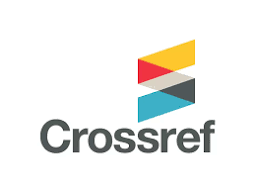Peer Review Policy
IJP is a PEER REVIEWED journal following DOUBLE BLINDED PEER review system. IJP is having a panel of peer-reviewers with diversity, viewpoint and expertise in relevant specialties.
Reviewers should not be a member of Editorial board.
Identification and evaluation of reviewers
- The editor will establish a reviewer database that includes information about the expertise of each reviewer as well as addresses and other contact information.
- The editor may identify potential reviewers on the basis of personal knowledge of the topic or from among the authors of references in the manuscript, the membership of the professional societies, colleagues at affiliated institutions.
- Only those reviewers whose consent to be on review panel will be added to the IJP online review and tracking system.
- Authors may suggest reviewers for their manuscript, whether invited to do so by the editor or not. The editor may choose to use one or more of these reviewers, but are under no obligation to do so. Authors may ask that certain people not be asked to review their manuscript and editor may decide the case accordingly.
- The editor should ask reviewers, by telephone, fax or e-mail, if they are willing to review a particular manuscript, and give them a date that the review is due at the editorial office (usually 3 to 4 weeks), rather than simply sending the manuscript to the reviewer.
- The editor is responsible for keeping track of reviewers, and taking steps to make sure reviews are completed in a timely manner. Reviewers who consistently decline invitations or who write brief unhelpful reviews are eventually removed from the database.
- To avoid overworking reviewers, each reviewer will be asked to evaluate no more than two manuscripts per issue. Reviewer has the right to decline the review due to any reason.
Responsibilities of reviewers
- The Peer reviewers will be experts in their field of study and will be able to provide an objective assessment of the manuscript.
- To evaluate manuscripts critically but constructively and to prepare detailed comments about the research and the manuscript to help authors improve their work.
- Reviewers have to assess the manuscript according to the reviewers’ proforma sent to each reviewer along with the manuscript. The evaluation should include:
- Title, aims and objective of study
- The design of the study;
- The methods of study, including analytic and statistical methods;
- The presentation of the results
- Important findings of results discussed with new emerging findings
- Strength of the conclusions, any limitation of study
- The overall quality of the manuscript.
- Assessments of the originality and importance of the research.
- It is the responsibility of the reviewer is to make recommendations to the editor regarding the suitability of the manuscript for publication in that journal.
- Reviewers may be asked to write some narrative comments about the manuscript that supports their recommendation to the editor regarding acceptance or rejection. They are also asked to comment on some characteristics of the manuscript, such as originality, quality, accuracy, readability and interest to readers.
- Reviewers should declare to the editor any potential conflicts of interest with respect to the content of a manuscript they are asked to review, and in most instances when such conflicts exist should decline to review the manuscript.
- Reviewers should include treating the manuscript as a confidential document and completing the review promptly.
- Reviewers should not show the manuscript to anyone else without the express consent of the editor.
- Reviewers should not make derogatory comments about the manuscript in their comments for the authors. If reviewers do make such comments, the editor may choose to edit the comments or even withhold all the reviewer’s comments from the authors.
- Reviewers must not make any use of the work described in the manuscript.
- The editor will provide guidance to the reviewers, particularly new reviewers, regarding how the editor wishes the reviewers to evaluate the manuscript and how the reviewers should meet their dual responsibility of providing constructive comments for the author and advice to the editor.
- Reviewers should meet the agreed-upon deadline (usually 4 weeks) for manuscript review and should respond to the reminders if sent any.
Rewarding reviewers
- “Thank you” email will be sent immediately on completion of the review to each reviewer through online review system.
- Review-credit certificate, duly signed by the editor will be sent through email to the reviewer on demand.
- Rs 1000 is also given to reviewer for each manuscript he or she reviews.
Final decision making after review
- The editor makes a decision about the manuscript (accept, invite a revision, or reject it) based on a consideration of all the reviewer comments, his own critique, and other external factors.
- The editor may always seek additional review and advice if required.
- Editor will communicate the decisions to authors. This means that the editor may need to provide explanations for the decision independent of the comments of the reviewers that are to be sent to the authors.
- The editor should actively encourage revision of manuscripts thought to be potentially acceptable. When an editor seeks revision of a manuscript, he should make clear which revisions are essential, and which are optional.
- If the comments of the reviewers are contradictory, the editor must decide and tell the authors which comments the authors should follow. Editors may add their own comments and suggestions for revision, and they (or some person in the editorial office designated by the editor) are responsible for ensuring that manuscripts meet the journal.
Note: Due to blind peer review policy, review details are not shared publicly, however can be shared to International Indexing agencies, Higher Education commission Pakistan on demand or during journal evaluation process, as the case may be.

